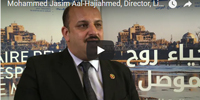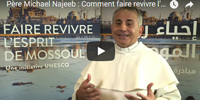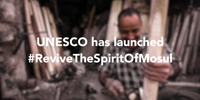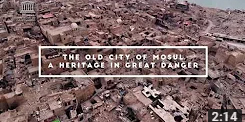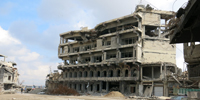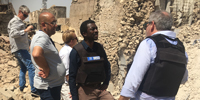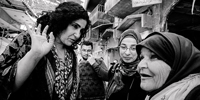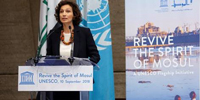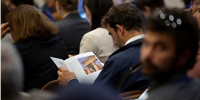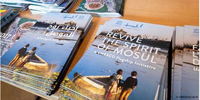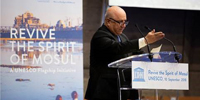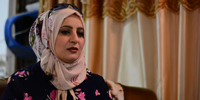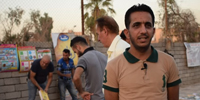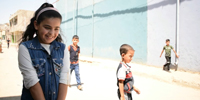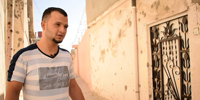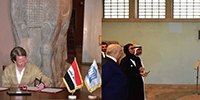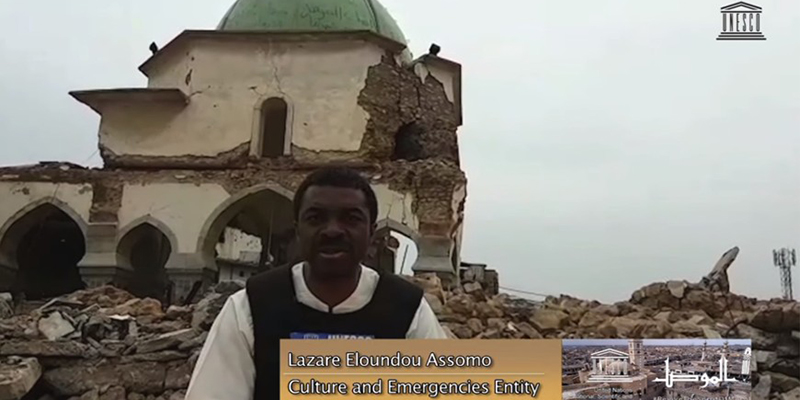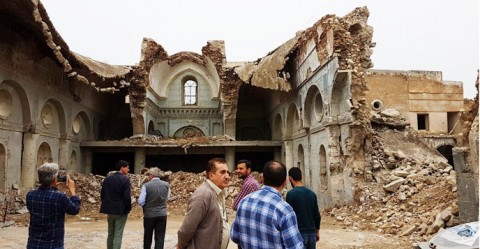
Revive the spirit of Mosul
Mosul is the living symbol of Iraqi’s pluralistic identity. For centuries, it has been a crossroad of culture in the Middle East. From the Sumerian cities to Babylon, from the walls of Nineveh to the Silk Road, the region has been a melting pot of people and ideas. Between 2014 and 2017, this story of peace – the true spirit of Mosul – has been overshadowed by another story of hatred and violence.
The occupation of Mosul left the City destroyed. Not a single structure is unscathed. Not a single pane of glass is unbroken. The archeological site of Nimrud, the Museum of Mosul, the Nabi Younnis Shrine, the Al Hadba Minaret and many other sites and landmarks lie in ruins.
Thousands of homes are heaps of rubble. Many residents are slowly returning, the camps near the City are full. The entire education sector from pre-primary to higher education is devastated while students and teachers are struggling with the physical as well as the physiological sequels of the war. The occupation of Mosul left the City destroyed. Not a single structure is unscathed. Not a single pane of glass is unbroken. The archeological site of Nimrud, the Museum of Mosul, the Nabi Younnis Shrine, the Al Hadba Minaret and many other sites and landmarks lie in ruins. Thousands of homes are heaps of rubble. Many residents are slowly returning, the camps near the City are full. The entire education sector from pre-primary to higher education is devastated while students and teachers are struggling with the physical as well as the physiological sequels of the war.
In February 2018, the International Conference on the Reconstruction of Iraq (Kuwait City) focused on the importance of the human dimension at the heart of sustainable recovery and reconstruction. This is why the Director-General of UNESCO launched a flagship initiative “Revive the Spirit of Mosul”, focusing on the human dimension of reconstruction. With the full support of the Government of Iraq and of the UN Secretary-General, UNESCO will coordinate international efforts in two main areas: the restoration and rehabilitation of cultural heritage and the revival of educational and cultural institutions.
UNESCO has a longstanding cooperation with Iraq. It has been present in Iraq since early 2003 and has successfully accomplished a number of major cultural heritage projects, such as the restoration of the Al-Askari Shrine in Samarra, and the Revitalization of Erbil Citadel. In 2017, UNESCO, in cooperation with the Iraqi Ministry of Culture, launched the Response Plan for the Safeguarding of Cultural Heritage in the Liberated Areas of Iraq (2017-2019). Revive the Spirit of Mosul” is a UNESCO priority for the next years. It is the most important reconstruction campaign undertaken by UNESCO in recent times. Since February, UNESCO is fully mobilized for the Mosul initiative, at its Headquarter and in its Field Offices in Bagdad and the region. The initiative is in line with the Plan for “Reconstruction and Development in Iraq” of the Iraqi Government and the Program for Recovery and Resilience in Iraq (RRP) initiated by the UN Secretary-General. Follow #ReviveTheSpiritOfMosul
Multimedia
First International Meeting on the "Revive the Spirit of Mosul" Initiative
The International Meeting on the "Revive the spirit of Mosul" initiative was organized by UNESCO in collaboration with the Government of Iraq, at UNESCO Headquarters in Paris, on 10 September 2018.
The meeting brought together representatives from the Iraqi Government and Member States, leaders of relevant international and regional organizations, development cultural and educational institutions, UN organizations, and representatives of relevant humanitarian non-governmental organizations.
The objective of the meeting was to mobilize the international community for the reconstruction and recovery of Mosul, to take stock of the current situation on the ground, and to present a list of major projects that are contributing to the rehabilitation of Mosul’s heritage sites, reviving its cultural life and its educational institutions.
Introductory Speech by the Director-General, Ms Audrey Azoulay
Projects
The Spirit of Mosul
Mosul is one of the world’s oldest cities.It is Iraq's second city, rich in history, heritage and culture. Its name in Arabic means "the connector", and for good reason. For millennia, this strategic crossing on the Tigris has linked north to south, east to west. Here in antiquity Jews met Assyrians, Romans met Persians at Nineveh, on the east bank of the river. Later, Christians met Muslims, Turks met Arabs in the once-new Old City to the west. Mosul has witnessed many conflicts in its long life, from intellectual battles to military engagements, as well as long periods of peace and harmony. It has had proud eras of political independence, economic prosperity, and intellectual leadership, as well as lows of occupation and repression.
Mosul's extraordinary history is written into the very fabric of the old city. Its museum documents the region's Assyrian and Arab antiquity. Many of its 486 mosques, shrines, and Muslim burial sites date back to the twelfth century, when Mosul was the glorious capital of the Zangid dynasty, renowned for its exquisite metalwork, miniature paintings and silk carpets. The thirty-two churches and six monasteries attest to its vitality as a Christian centre of worship and learning since at least the fourth century AD. The spice market at Bab Al-Saray has received traders and goods from India and China for over a thousand years. The books sold in Al-Nujaifi Street embody the trade in ideas that has flowed through Mosul for since time immemorial. The spirit of survival and innovation, of diversity and co-existence, is at the very core of Mosul's identity. Let us all join together with the people of Mosul to revive this spirit of connection once again.

